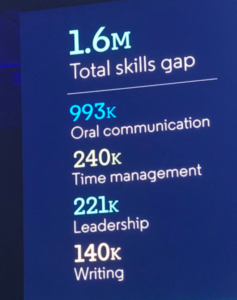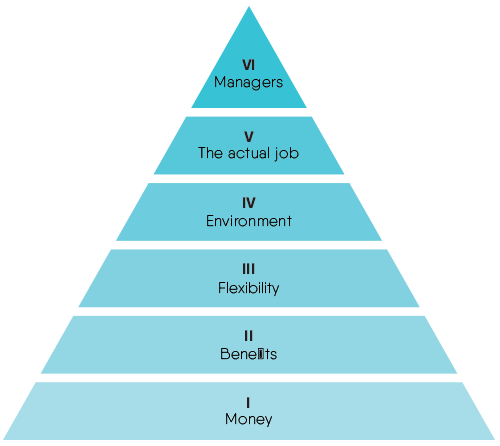I have a brain crush on Smashfly’s Tracey Parsons. She’s a great Recruitment Marketer who flat out gets what you and I should be doing to get candidates to find us!
I only tell you this because Tracey shared something online this week that I had to share. I came on a LinkedIn post by Joel Cheesman (you can look him up as well, he’s way less impressive than Tracey, but he might be your flavor! JK, Joel! He’ll cry himself to sleep tonight if I don’t say that!) where Joel was stating a stat “80% of applicants start at Google“.
Cool stat. You probably didn’t know that. About a year and a half ago, Google said it was 47%, before they launched Google for Jobs, so it shows that GFJ is actually already having a big impact on candidate behavior.
Tracey’s response was this:
“And approximately 0% of those searches involve your brand name”
Bam! Mic drop! Walk off stage.
She’s dead on 100%-ish percent accurate!
No one is going to Google searching for “Jobs at Amazon” or “Jobs at ABC Manufacturing”. If they already know they want to see your jobs, they’re just going directly to your career site, or corporate site, where you’ll make them click around for five minutes to find your jobs. Oh, wait, maybe they should be Googling jobs at “X”!
I think Tracey’s point is that you shouldn’t be focused on SEO to drive people to your ‘brand’. You should be focusing on SEO to drive people to the market and the jobs you have, the brand at this initial point, doesn’t matter.
We love to think it matters, but 99.8% of us have an unrecognizable brand to the majority of candidates. That’s not a negative statement, that’s just reality. They don’t see any difference in what it’s like to work for us unless you’re a Unicorn brand.
But we aren’t all Google or Facebook or Amazon. We’re just good, solid companies to work for, that are virtually indistinguishable from every other good, solid employer who’s out there.
So, what can you do?
- Truly understand the impact Google is making on candidate behavior.
- Turn yourself into a Marketer. Think like a marketer. What would it take to get people to know who we are?
- Turn your employees into Brand Advocates.
- Stop paying Referral Bonuses, and buy Employee Referral Technology.
- Build and turn on a Recruitment Marketing machine for your shop.
Also, go read and learn from super smart people like Tracey and Joel. That’s what I do.



 Level I – Money – cash!
Level I – Money – cash!